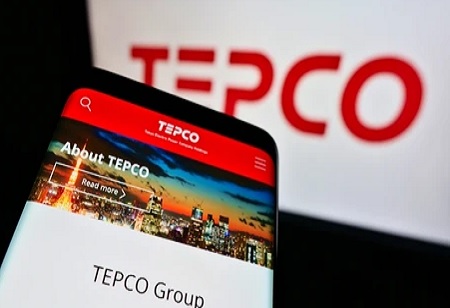
Japan's TEPCO Plans to Make Hydrogen with Geothermal Power

 Tokyo Electric Power Co. Holdings (TEPCO) is expanding its renewable energy efforts by planning to produce hydrogen using geothermal power in Indonesia. Partnering with Indonesia’s state-run oil company Pertamina, TEPCO will install hydrogen production equipment at a geothermal power plant in eastern Indonesia. Slated to begin as early as 2027, this initiative is part of a larger strategy to meet the rising demand for low-emission energy solutions.
Tokyo Electric Power Co. Holdings (TEPCO) is expanding its renewable energy efforts by planning to produce hydrogen using geothermal power in Indonesia. Partnering with Indonesia’s state-run oil company Pertamina, TEPCO will install hydrogen production equipment at a geothermal power plant in eastern Indonesia. Slated to begin as early as 2027, this initiative is part of a larger strategy to meet the rising demand for low-emission energy solutions.
Meanwhile, major Japanese construction firm Obayashi is also jumping into the hydrogen game, with plans to produce hydrogen in New Zealand. These efforts align with Japan's recent announcement to revise its hydrogen strategy, aiming to boost the annual hydrogen supply to 12 million tonnes by 2040. This target comes as a direct response to increasing competition in the global hydrogen market, with significant investments from the U.S. and Europe.
Japanese Prime Minister Fumio Kishida is keen on developing hydrogen supply chains and enhancing domestic regulations to meet these ambitious goals. By 2030, Japan plans to ramp up its hydrogen supply to approximately 3 million tonnes, up from the current 2 million tonnes primarily used by oil refiners. The longer-term vision is to expand this figure to 20 million tonnes by 2050, with hydrogen and ammonia playing key roles in Japan's goal to achieve carbon neutrality.
Hydrogen is emerging as a key alternative to fossil fuels, particularly in sectors like energy, steel, and chemicals that are striving to reduce their carbon emissions. Green hydrogen, produced through electrolysis powered by renewable energy, stands out for its zero-emission potential, making it a promising solution for powering homes and businesses sustainably. Also, Japan has committed to investing $113 billion over the next 15 years to advance hydrogen development.

